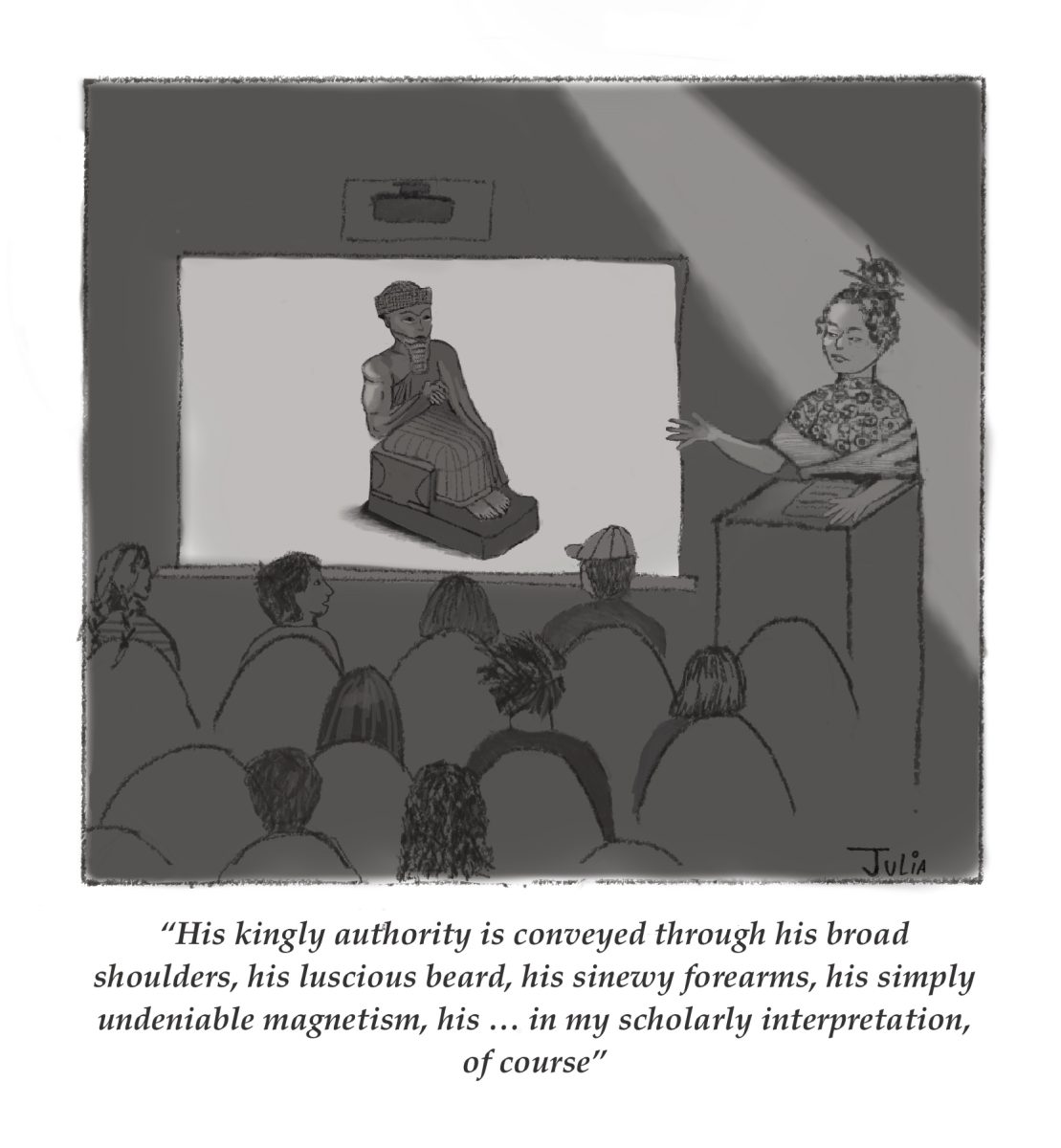Due to the recent events revolving around Kai Green ’07, assistant professor of women’s, gender and sexuality studies, and Kimberly Love, assistant professor of English, some faculty members have been wondering what the two professors meant by the “violent practices” of the College. I asked myself the same question and tried to seek the answer in their published piece in The Feminist Wire. Since I do not know Professor Green or Professor Love personally, I could only guess what their experiences might have been based on my own experience at the College. I am not speaking on their behalf. I am not their spokesperson. I am not defining what they mean. I am not erasing what they want to say. Everybody’s experiences could be drastically different on this campus.
The way I understand the phrase they used is that it is not the type of visible violence we usually associate with the word “violent,” but something that could be equally harmful. Maybe we could call it “cold violence.” One example of such “cold violence” was the cold shoulders I received during my first few years working at Williams. Some faculty from outside of my home unit would see through me as if I were transparent or did not exist when I greeted them at faculty events or on campus. When I spoke to some colleagues, they acted as if I were a babbling clown or an ignorant alien. These experiences made me understand why Ralph Ellison named his novel Invisible Man. I felt as if I were invisible during the first few years I worked at the College. To be sure, over the years, I have made more and more friends among the faculty and staff. However, such precious friendships did not easily cancel out the ignoring or unfriendliness I encountered as a junior faculty member. Recently I discovered from my conversations with some junior faculty that they have had similar experiences. One young colleague of color was even presumed to be a waiter at a faculty reception. Such microaggressions usually happen in small, private situations. But being “micro” or “unintentional” does not make them less violent in terms of the psychological harm that these behaviors cause to the victim.
A few months ago, I wrote an op-ed describing my daughter’s experiences in the local elementary school. Many students, faculty and staff members have reached out to me and offered moral support. I am eternally grateful to them for the outpouring of their kindness and understanding. Nobody believed that what happened to my daughter could have happened in such a liberal place as our beautiful college town. Some of them asked me whether or not these children exhibited such behaviors because of their upbringing. Sadly, I had to reveal that the child who called my daughter “small eyes” and formed a “club” to exclude my daughter was a child of a Williams professor. The worse part was, when I reached out to the parents about the issue, the encounter was not as friendly and productive as I would have liked it to be.
It is not my intention to blame anybody for what has happened to my daughter or me. After all, we are all human beings. We have different life-worlds. Cognitive scientists have informed us human beings are hardwired to be biased. The environment in which we grow up can oftentimes further solidify our explicit or implicit biases. But education and interactions with people who are different from us can make us become aware of these biases. If we try, we might be able to recognize our own blind spots, change ourselves and make our surrounding world a little better for everybody.
In intercultural communication studies, racism and ethnic tensions are taboo topics in everyday life or, in professional jargon, part of the “suppressed culture.” People tend to find such topics uncomfortable to talk about. The College, as a whole, has yet to find constructive ways to discuss such sensitive topics and make it easier for all of the students, faculty and staff coming from different cultural, ethnic and economic backgrounds to discuss these difficult topics and find ways to “survive and thrive” on this campus.
Being a practical and optimistic person, I would like to offer some constructive suggestions to my fellow senior colleagues:
1. Let us not rush to blame the victims. Give them the benefit of the doubt. Listen to them, hear them out.
2. Reach out to junior faculty, initiate a dialogue and have a heart-to-heart conversation. Get to know them well, and let them know you. Make them feel at home; make them feel they are welcomed and belong in this community.
3. At department, committee and faculty meetings, encourage junior colleagues to speak, and listen carefully to what they have to say. Respect and value their opinions even if you might disagree with them. We often disagree on various issues, but let us disagree in a calm and constructive way.
4. Let us all be friendly, courteous and professional to each other.
Many a time, I was told that Williams College is located in New England, and people from this region tend to be cold. I would assume that the majority of the faculty members who work at Williams are not originally from this region. If the faculty data speaks otherwise, then the College should probably look into this matter. The New England winter is long and cold. But the working environment at this small college does not have to be like the New England winter. We cannot change the winter here, but through our collaborative efforts we can definitely change the climate of the College.
Li Yu, professor of Chinese language and culture, has been at the College since 2005.




